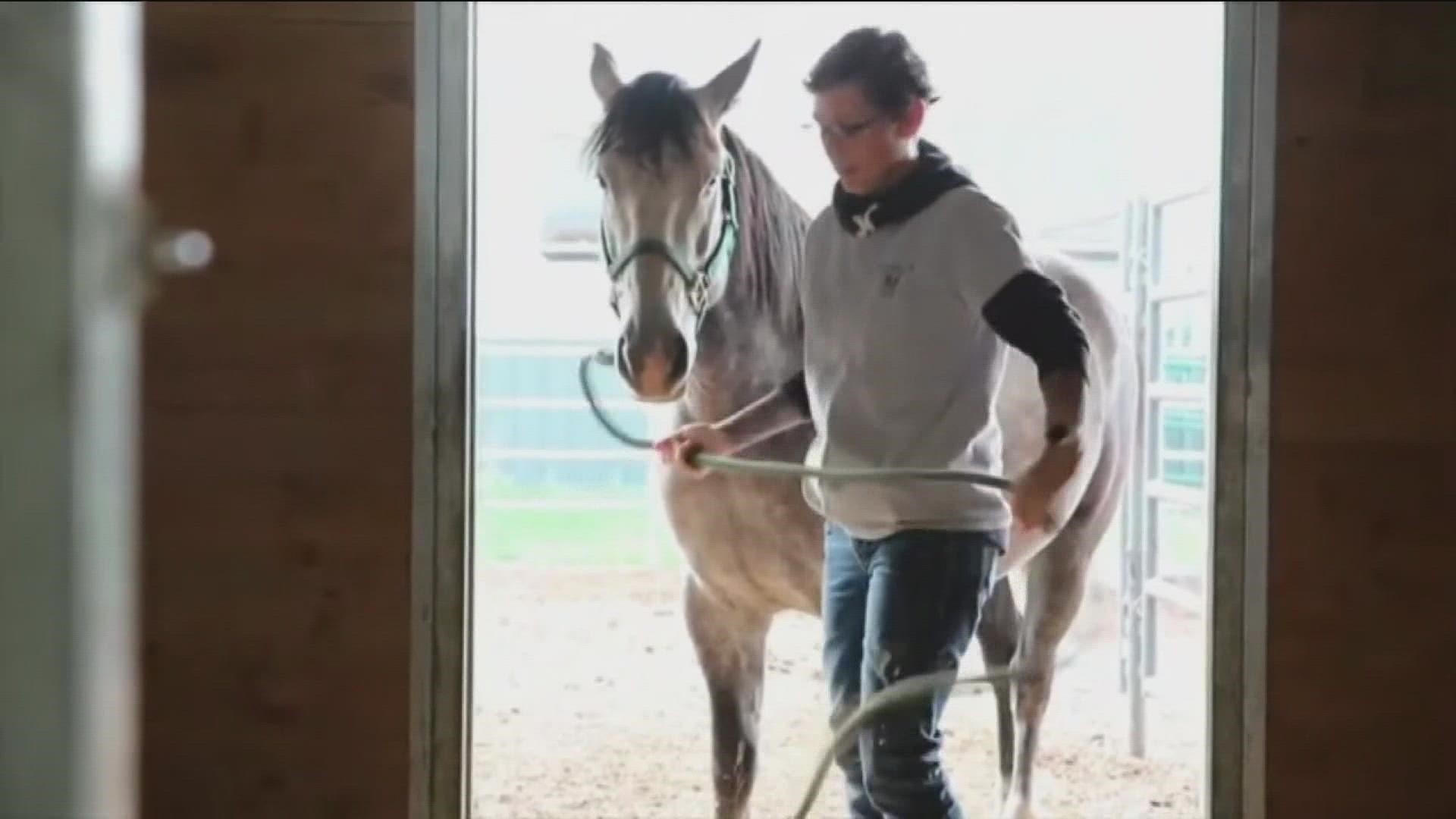BOISE, Idaho — Idaho's first equine case of West Nile Virus (WNV) was just reported in Gooding County, by an animal health laboratory with the Idaho State Department of Agriculture (ISDA).
Common symptoms of WNV in horses include fever and weakness, which can typically be observed in the horse's hindquarters by a widened stance, stumbling, leaning to one side or dragging their toes. In extreme cases, horses may lose their ability to stand or even become paralyzed.
There are also mental symptoms that can develop, like lip-smacking or chewing movements and fine muscle tremors; some horses may also demonstrate an overall fearfulness as a symptom.
The positive case was detected in Gooding County, but the horse is now recovering under the care of a veterinarian. Vaccination and physical precautions can be two of the most effective ways to deter infection, according to ISDA recommendations.
"The WNV vaccination continues to be an essential preventive measure and should be given annually to provide an adequate level of protection from the virus," Idaho State Veterinarian Dr. Scott Leibsle said. "Nearly 98 percent of horses that test positive for WNV are non-vaccinated or under-vaccinated. Horse owners should speak with their veterinarians about the WNV vaccination and other necessary annual core vaccinations as well as how to follow an annual booster schedule. Horses that have been vaccinated for WNV in previous years must receive annual boosters; a one-time vaccination is not enough."
WNV is typically spread through bites by infected mosquitos. Community members should take extra precautions when spending time in areas with WNV-carrying mosquitoes, and ensure that any animals traveling along are properly prepared.
To protect against mosquito bites, Idaho residents should wear long-sleeved shirts and long pants during active mosquito hours, dusk to dawn, and use insect repellant as instructed on the label. Homeowners should also double-check screens are in working order and repair any damages or holes.
Precautions for protecting your animals can include using fans and repellants to keep mosquitos at a distance, and removing or treating any standing water near the property that may breed more mosquitos.
"There is no vaccine for people," said Dr. Leslie Tengelsen, State Public Health Veterinarian with the Idaho Department of Health and Welfare. "Although most infections in people are mild, some people can become quite ill. Avoid mosquito bites by taking simple precautions."
More information about the virus or where it has been detected in Idaho is available at the Idaho Department of Health and Welfare's website.
Watch more Local News:
See the latest news from around the Treasure Valley and the Gem State in our YouTube playlist:

